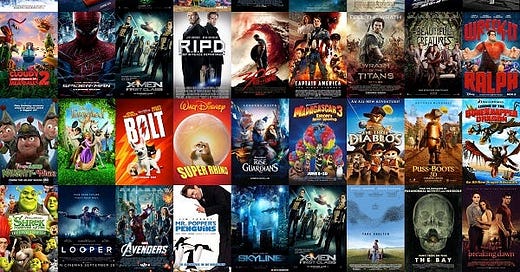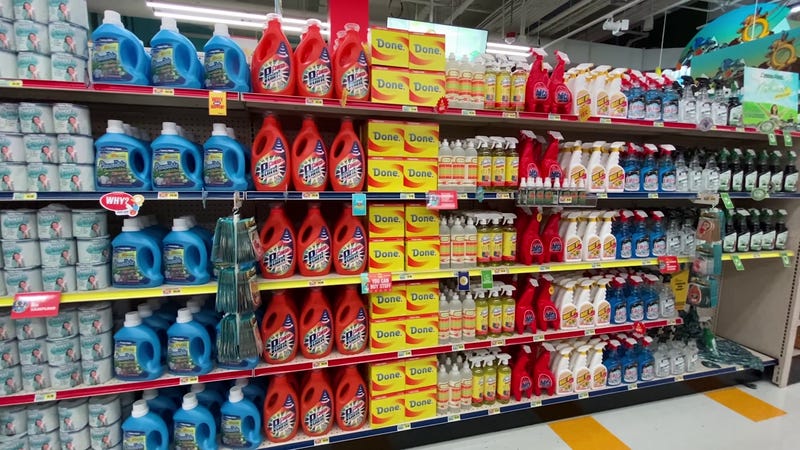The Immersion Economy: Our Growing Hunger for Fictional Universes
Why consumers love sequels, and what brands can do about it
In 2024, as eight of the top ten highest-grossing films were sequels, the familiar chorus of criticism rang out: Hollywood is creatively bankrupt. Audiences are risk-averse. The movie industry has devolved into a franchise factory. But what if we're looking at this all wrong?
Rather than lamenting the dominance of sequels, we should recognize it as a signal of something far more interesting: humanity's deepening appetite for immersive worlds. In an era where TikTok has turned culture into an endless stream of bite-sized content, people aren't just accepting sequels – they're craving them. They're hungry for deeper, richer narratives they can lose themselves in.
Consider "Harry Potter: Wizards of Baking," a show that transforms the simple act of decorating cookies into an enchanted competition. Its success isn't about capitalizing on nostalgia; it's about giving fans another portal into a world they never wish to leave. Or the website Fandom, which contains over 250,000 wikis about almost every fictional universe ever created. Even A24's "Civil War," celebrated for its stark realism, faced criticism not for its execution but for leaving too much of its world unexplored – viewers wanted more context, more depth, more world to inhabit.
This hunger for immersion isn't new. The classics of yesterday – from Victor Hugo's sprawling "Les Misérables" to Tolkien's meticulously crafted Middle-earth – were written understanding that readers don't just want stories; they want universes to explore. What's changed is how modern brands are applying this age-old wisdom.
The modern brand universe
Take Meow Wolf, whose art installations aren't just Instagram backdrops but portals to alternate dimensions, complete with hidden narratives and interconnected mysteries. Their Omega Mart installation in Las Vegas even featured custom-made products available for purchase. When visitors can purchase authentically crafted artifacts like "Mammoth Chunks," "Organic Moth Milk," or “Plausible Deniability” (one of the three brands of laundry detergent), they're not just buying products—they're acquiring tokens from an alternate reality, each item a thread in a larger story waiting to be unraveled.
Or Nutter Butter, who carved out its own absurdist corner of TikTok, where cookie characters live out delightfully deranged adventures. In what feels like a cross between a Van Gogh painting, a ’90s MTV commercial and a Gen Zer’s bedroom, the cookie’s socials have caused fans and media alike to wonder “What’s going on over there?” The strategy has proven so compelling that it's spawned its own anthropologists, with Reddit communities meticulously documenting the expanding “Nutterverse.”
But this type of world-building is not restricted to the weird and bizarre. Dr Pepper's
“Fansville” created a fictional town that lives and breathes college football every season, turning commercial breaks into light-hearted windows into a parallel universe. As the campaign continues, real world events and college football athletes are finding themselves a part of this world.
The path to your brand world
For brands looking to build their own worlds, the path forward requires both ambition and restraint.
Start small. Introduce elements of your world gradually, like Marvel did with Iron Man, rather than overwhelming audiences with mythology (we see you Multiverse of Madness).
But once you start, commit fully. World-building isn't a campaign; it's a long-term investment in creating spaces where consumers want to spend time.
Most importantly, remember that world-building transcends any single medium. While films and TV shows are obvious vehicles, your world can manifest through product packaging, store designs, app interactions, and even website copy. Every touchpoint is an opportunity to add another layer to your universe.
In an era of fragmented attention, building a world isn't just a ‘clever’ tactic – it's a way to create connections with audiences who are desperate to immerse themselves. The success of sequels isn't a sign of cultural decline; it's evidence that when you build a world worth exploring, people will want to stay there.







